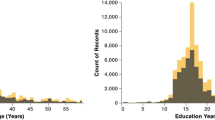Abstract
We present an approach to automatically generate a word-emotion lexicon based on a smaller human-annotated lexicon. To identify associated feelings of a target word (a word being considered for inclusion in the lexicon), our proposed approach uses the frequencies, counts or unique words around it within the trigrams from the Google n-gram corpus. The approach was tuned using as training lexicon, a subset of the National Research Council of Canada (NRC) word-emotion association lexicon, and applied to generate new lexicons of 18,000 words. We present six different lexicons generated by different ways using the frequencies, counts, or unique words extracted from the n-gram corpus. Finally, we evaluate our approach by testing each generated lexicon against a human-annotated lexicon to classify feelings from affective text, and demonstrate that the larger generated lexicons perform better than the human-annotated one.
Access this chapter
Tax calculation will be finalised at checkout
Purchases are for personal use only
Preview
Unable to display preview. Download preview PDF.
Similar content being viewed by others
References
Mohammad, S., Turney, P.: Crowdsourcing a word–emotion association lexicon. Computational Intelligence (2012)
Kozareva, Z., Navarro, B., Vázquez, S., Montoyo, A.: Ua-zbsa: a headline emotion classification through web information. In: Proceedings of the 4th International Workshop on Semantic Evaluations, SemEval 2007, pp. 334–337. Association for Computational Linguistics, Stroudsburg (2007)
Strapparava, C., Mihalcea, R.: Semeval-2007 task 14: affective text. In: Proceedings of the 4th International Workshop on Semantic Evaluations, SemEval 2007, pp. 70–74. Association for Computational Linguistics, Stroudsburg (2007)
Lu, Y., Castellanos, M., Dayal, U., Zhai, C.: Automatic construction of a context-aware sentiment lexicon: an optimization approach. In: Proceedings of the 20th International Conference on World Wide Web, WWW 2011, pp. 347–356. ACM, New York (2011)
Turney, P.D.: Mining the web for synonyms: PMI-IR versus LSA on TOEFL. In: Flach, P.A., De Raedt, L. (eds.) ECML 2001. LNCS (LNAI), vol. 2167, pp. 491–502. Springer, Heidelberg (2001)
Mohammad, S.: From once upon a time to happily ever after: tracking emotions in novels and fairy tales. In: Proceedings of the 5th ACL-HLT Workshop on Language Technology for Cultural Heritage, Social Sciences, and Humanities, LaTeCH 2011, pp. 105–114. Association for Computational Linguistics, Stroudsburg (2011)
Amiri, H., Chua, T.S.: Mining sentiment terminology through time. In: Proceedings of the 21st ACM International Conference on Information and Knowledge Management, CIKM 2012, pp. 2060–2064. ACM, New York (2012)
Turney, P.D.: Thumbs up or thumbs down?: semantic orientation applied to unsupervised classification of reviews. In: Proceedings of the 40th Annual Meeting on Association for Computational Linguistics, ACL 2002, pp. 417–424. Association for Computational Linguistics, Stroudsburg (2002)
Turney, P.D., Littman, M.L.: Measuring praise and criticism: Inference of semantic orientation from association. ACM Trans. Inf. Syst. 21, 315–346 (2003)
Yang, C., Lin, K.H.Y., Chen, H.H.: Building emotion lexicon from weblog corpora. In: Proceedings of the 45th Annual Meeting of the ACL on Interactive Poster and Demonstration Sessions. ACL 2007, pp. 133–136. Association for Computational Linguistics, Stroudsburg (2007)
Brants, T., Franz, A.: Web 1t 5-gram, 10 european languages version 1. In: Linguistic Data Consortium, Philadelphia, PA, USA (2009)
Author information
Authors and Affiliations
Editor information
Editors and Affiliations
Rights and permissions
Copyright information
© 2013 Springer-Verlag Berlin Heidelberg
About this paper
Cite this paper
Perrie, J., Islam, A., Milios, E., Keselj, V. (2013). Using Google n-Grams to Expand Word-Emotion Association Lexicon. In: Gelbukh, A. (eds) Computational Linguistics and Intelligent Text Processing. CICLing 2013. Lecture Notes in Computer Science, vol 7817. Springer, Berlin, Heidelberg. https://doi.org/10.1007/978-3-642-37256-8_12
Download citation
DOI: https://doi.org/10.1007/978-3-642-37256-8_12
Publisher Name: Springer, Berlin, Heidelberg
Print ISBN: 978-3-642-37255-1
Online ISBN: 978-3-642-37256-8
eBook Packages: Computer ScienceComputer Science (R0)




